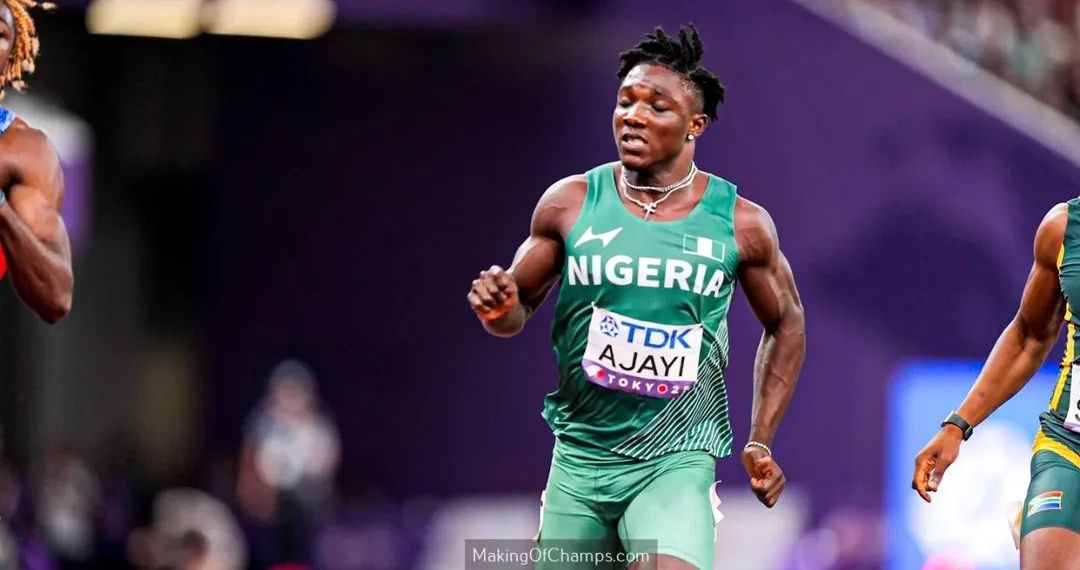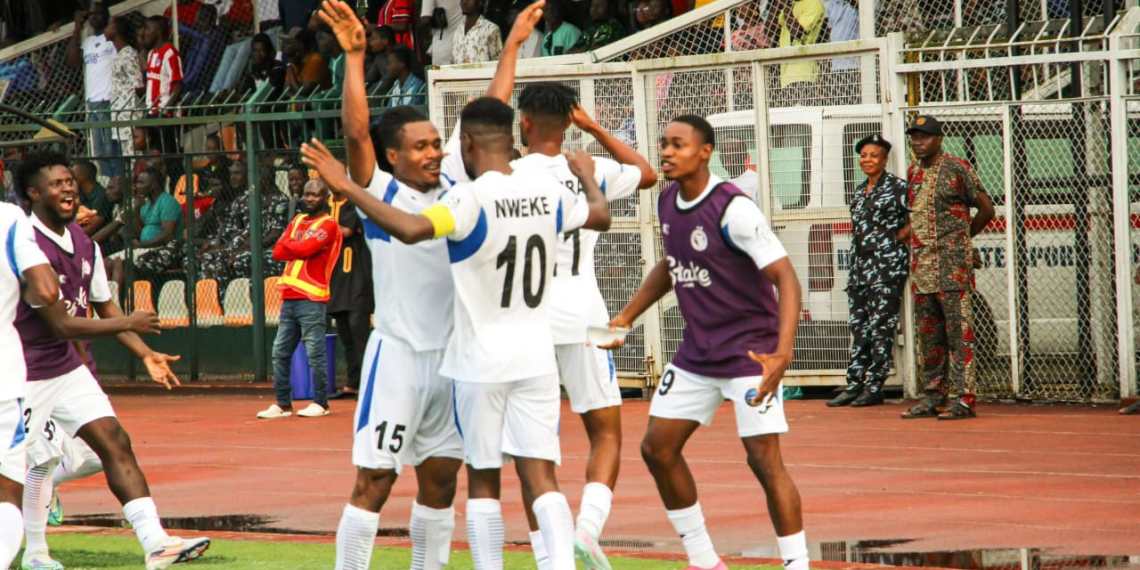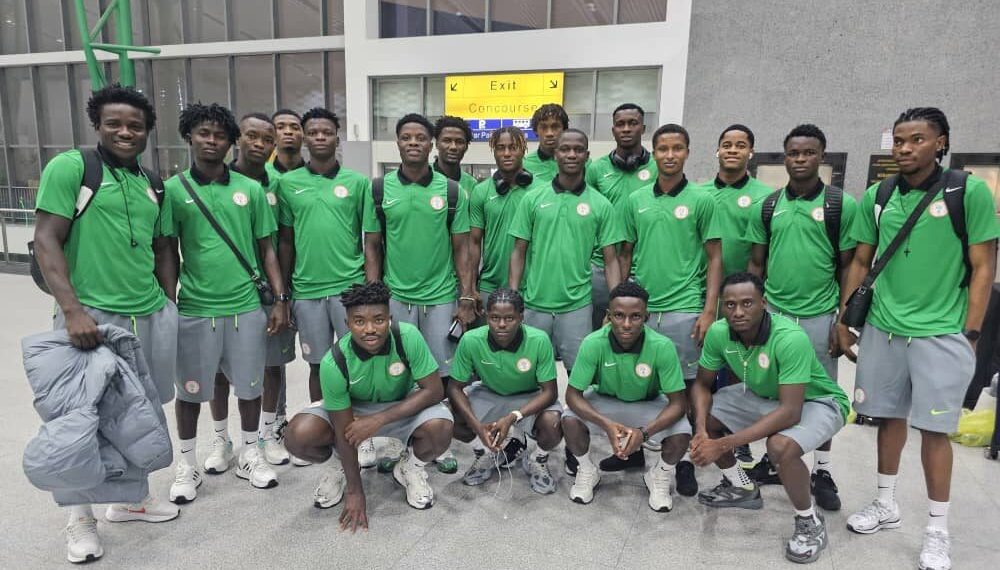When Nigeria’s Kanyinsola Ajayi stepped onto the track for the men’s 100m final in Tokyo, he wasn’t just running a race—he was carrying decades of hopes and the vibrant energy of Nigerian fans glued to screens across the country. At 21, clocking in as the youngest finalist and only days away from his birthday, Ajayi stood proudly against a world-class lineup, making his mark as the first Nigerian man since Olusoji Fasuba in 2007 to contend for a medal in the World Championships 100m final.
The Road to Tokyo: Rising Star in West African Sprinting
Ajayi’s journey this season has been nothing short of transformative, both for him and for the image of Nigerian sprinting. Before this year, his name wasn’t among the region’s household athletic heroes. Yet, over just a few months, his rapid progression—marked by six electrifying runs under the 10-second barrier—has made him a standout not only in Africa but in the global sprinting community.
His sequence of times throughout the season—9.96s, 9.95s, 9.93s, 9.92s (twice), and a personal best of 9.88s—signals both consistency and an upward trajectory. He now sits just three-hundredths of a second shy of Fasuba’s fabled Nigerian record, a feat many analysts see as a question of ‘when,’ not ‘if,’ for Ajayi.
Nigerian Fan Culture: Celebration, Analysis, and Hope
Watching from viewing centres in Lagos, Abuja, Port Harcourt, and beyond, Nigerian fans erupted in cheers as Ajayi powered across the finish line in sixth place—a result that, while short of the podium, carried immense significance. “It’s the first time in years we’ve seen a Nigerian man in a global 100m final,” remarked Lagos-based athletics pundit Bola Olumide. “For many of us, it’s a win in itself. The future looks bright.”
Social media was awash with messages of support and pride. The hashtag #AjayiRuns trended in Nigeria and across much of West Africa, with messages from Ghanaians, Ivorians, and South Africans congratulating Ajayi and calling him a beacon for African sprinting.
Analysis: What Sets Ajayi Apart?
Ajayi’s emergence isn’t just about raw speed. According to Coach Yusuf Adewumi, a former sprinter and current athletics coach based in Abuja, “What’s striking is Ajayi’s consistency. To run under 10 seconds not once or twice, but six times in a single season—that’s the mark of someone with both physical ability and mental discipline.”
- He has demonstrated remarkable composure, even in the high-pressure cauldron of a global final.
- His steady progression hints at intelligent coaching, strategic planning, and the ability to peak at the right time.
- He has inspired a new generation of Nigerian and African youngsters who now believe that reaching a global sprint final is truly within reach.
Ajayi’s semifinal performance in Tokyo—clocking 9.93s—was a statement, not only bringing Nigeria back to sprinting relevance but showing the world that African sprints can challenge the heavyweights from the US and Jamaica.
Challenges and the Road Ahead
Despite the jubilant atmosphere, challenges remain for Ajayi and for the wider West African sprinting ecosystem. Funding, world-class training facilities, and consistent sponsorship remain difficult for many Nigerian athletes. According to sports journalist Chidi Onuoha, “For Ajayi to cement his place among global sprinting elites, he’ll need more institutional support at home, opportunities to compete regularly at the top level, and his team must guard against injury or burnout.”
Yet, there’s optimism—especially with the 2025 athletics season looming. If Ajayi maintains this form, and with the continued support of the Nigerian Athletics Federation and private sponsors, the country’s search for a male 100m global medalist could soon be over.
Reactions from West Africa and Beyond
Ajayi’s remarkable run has been celebrated beyond Nigerian borders. Ghana’s sprinting community sent well-wishes, with former national champion Benjamin Azamati noting, “His success boosts all of us in West Africa. It tells our young athletes that the highest level is attainable, not just a dream.”
From Dakar to Johannesburg, track fans and pundits see Ajayi’s feat as a collective milestone, a sign that Africa’s next generation of sprinters is ready to take their place on the world stage. The global athletics fraternity, too, is eager to see what the Nigerian dynamo will bring to future championships.
What’s Next for Ajayi—and for Nigerian Sprinting?
As Ajayi returns to training, attention will turn to the next stages of his burgeoning career. The focus will be not only on medal potential but on breaking the long-standing national record and inspiring even greater depth in Nigeria’s sprinting talent pipeline.
For many Nigerian fans, Ajayi’s Tokyo appearance is more than just a race; it’s a signal—a sign of renewal, resilience, and the enduring promise of Nigerian athletics. As one fan at the National Stadium in Abuja put it, “We’re witnessing a new era. We believe Nigeria will compete for global medals again, and Ajayi is the face of that belief.”
Conclusion: The Start of a New Chapter
Ajayi’s sixth-place finish in Tokyo may not have delivered a medal, but it has reawakened Nigerian and African pride in athletics. It stands as a testament to perseverance and signals the arrival of a true sprint contender from West Africa.
What do you think? Will Ajayi break the Nigerian record and bring home a global medal soon? Share your hopes and predictions for Nigeria’s sprinting future—drop a comment and follow us for the latest updates.
Reach out and get your story featured! Email us at story@nowahalazone.com—we welcome story sales and submissions!
For general support, ideas, or tips, contact support@nowahalazone.com.
Want more sports stories or updates on Nigerian athletics? Follow us on
Facebook,
X (Twitter), and
Instagram for community commentary, athlete features, and more!
Your view counts—share your thoughts in the comments and join the conversation on the future of African athletics!










